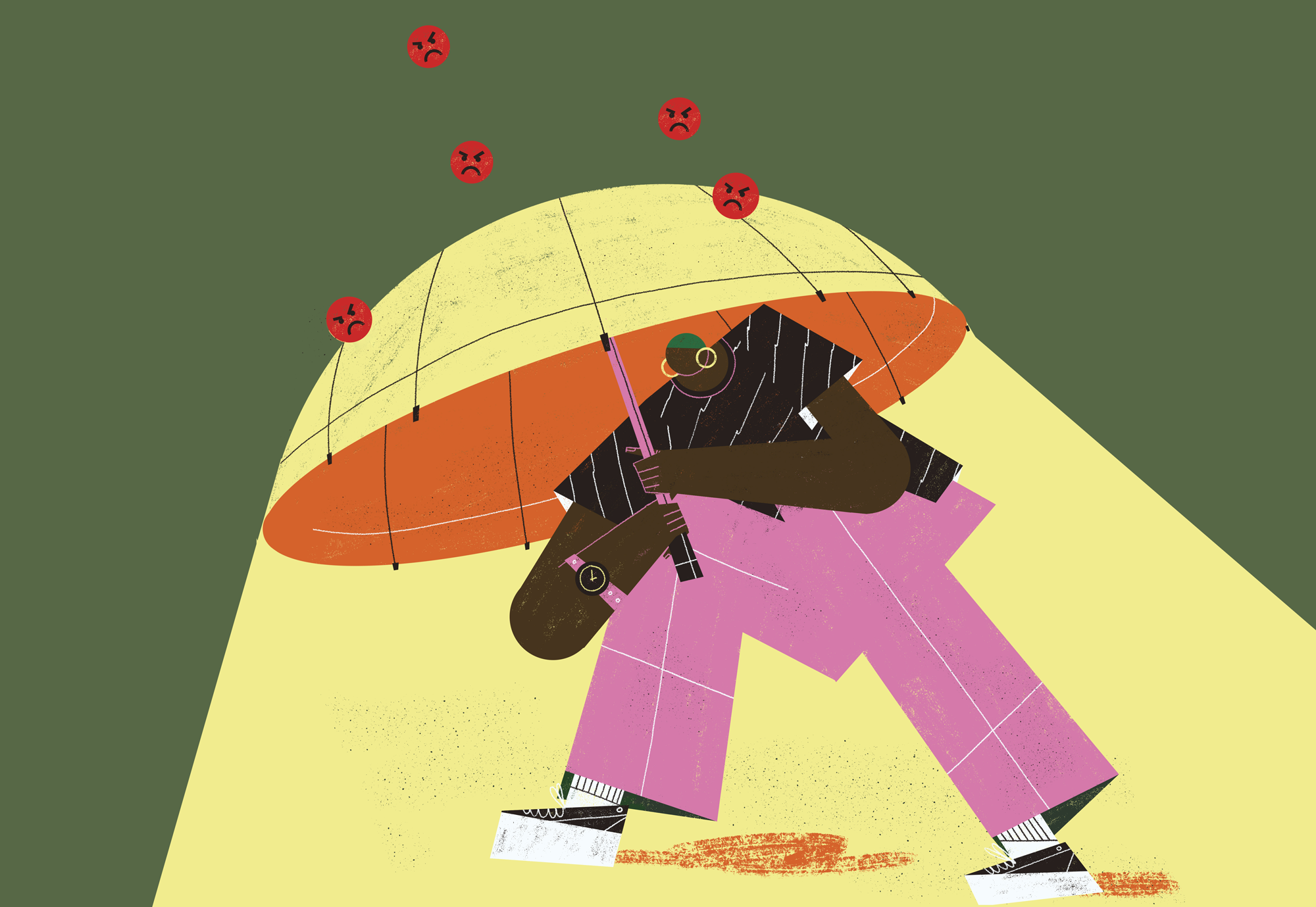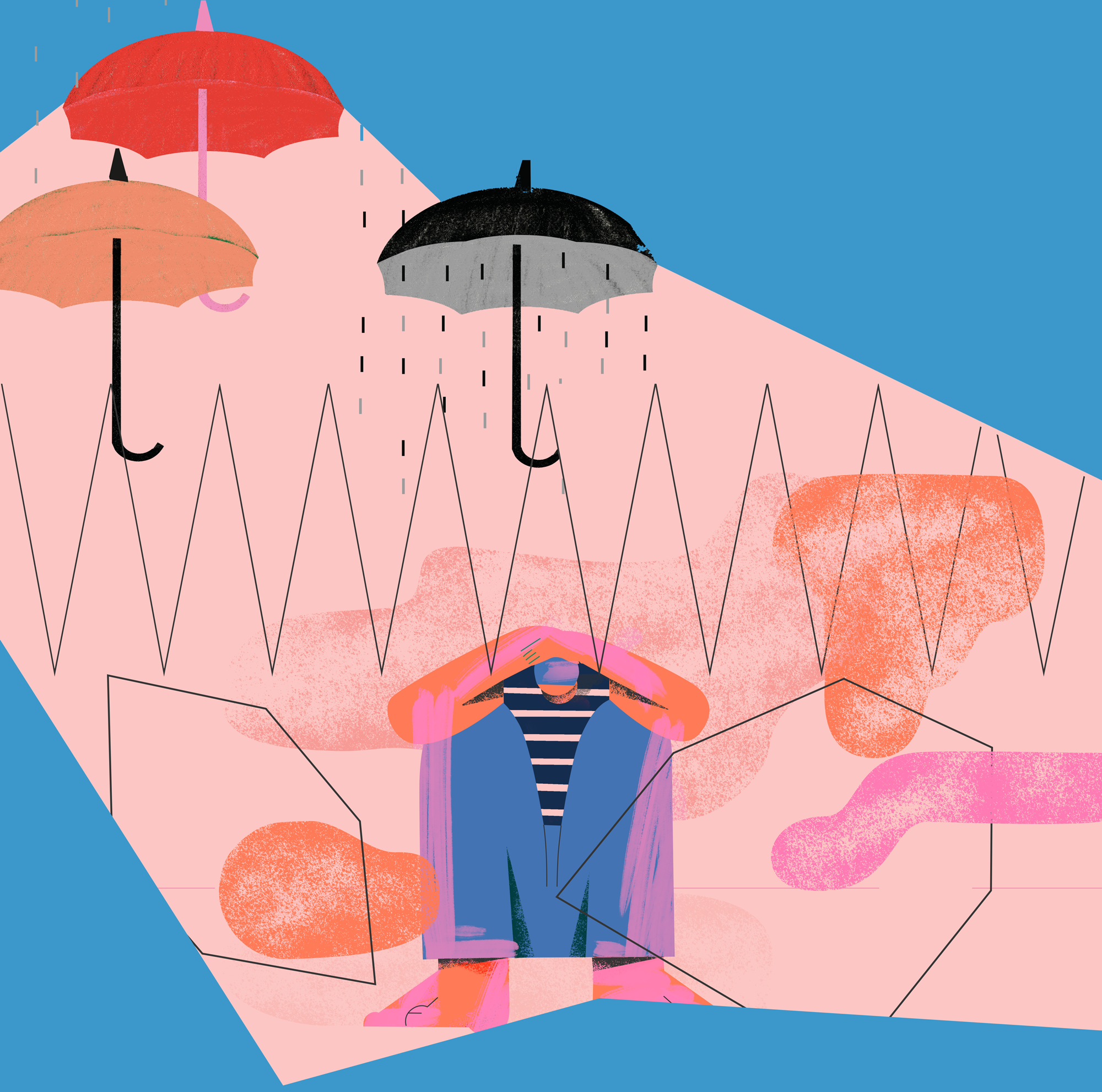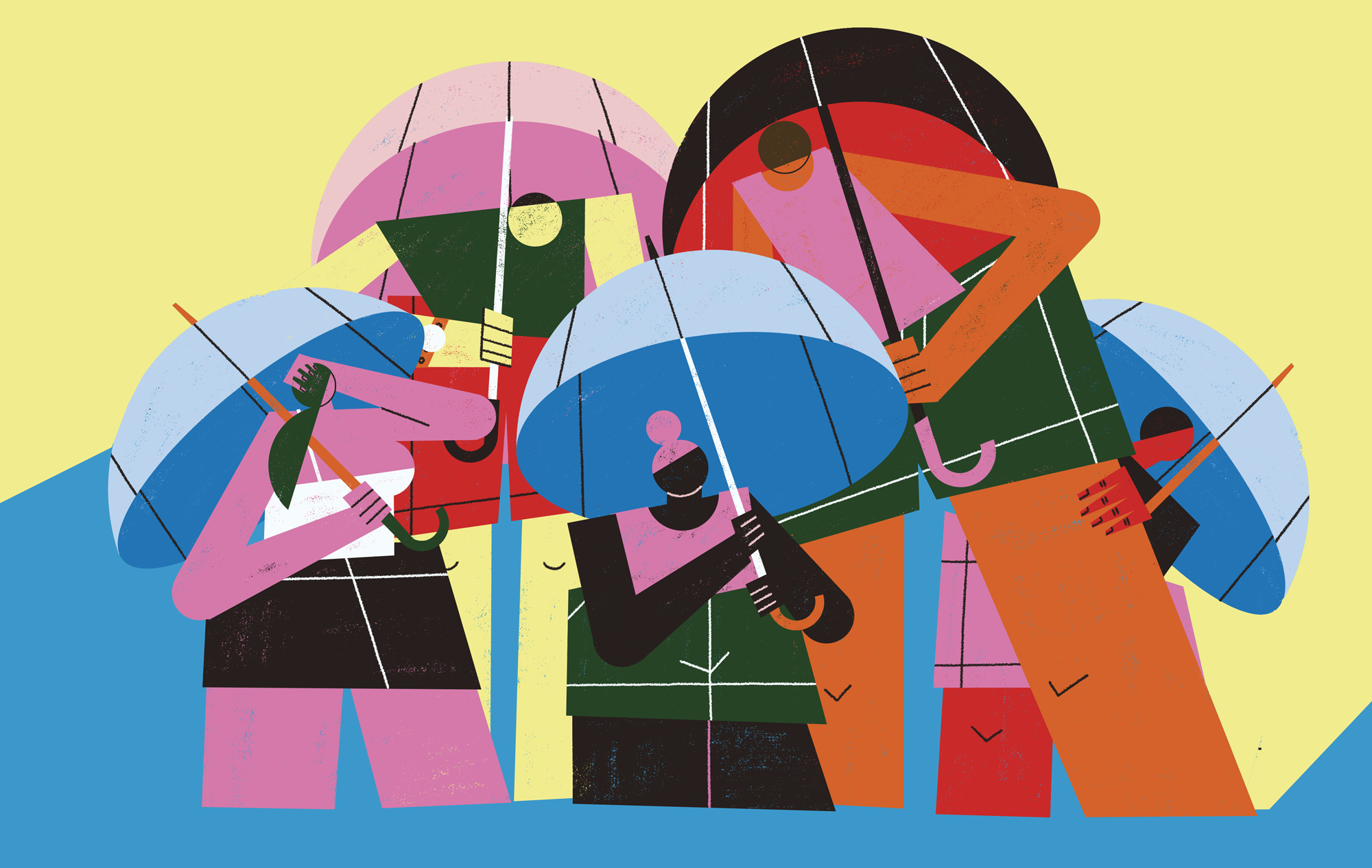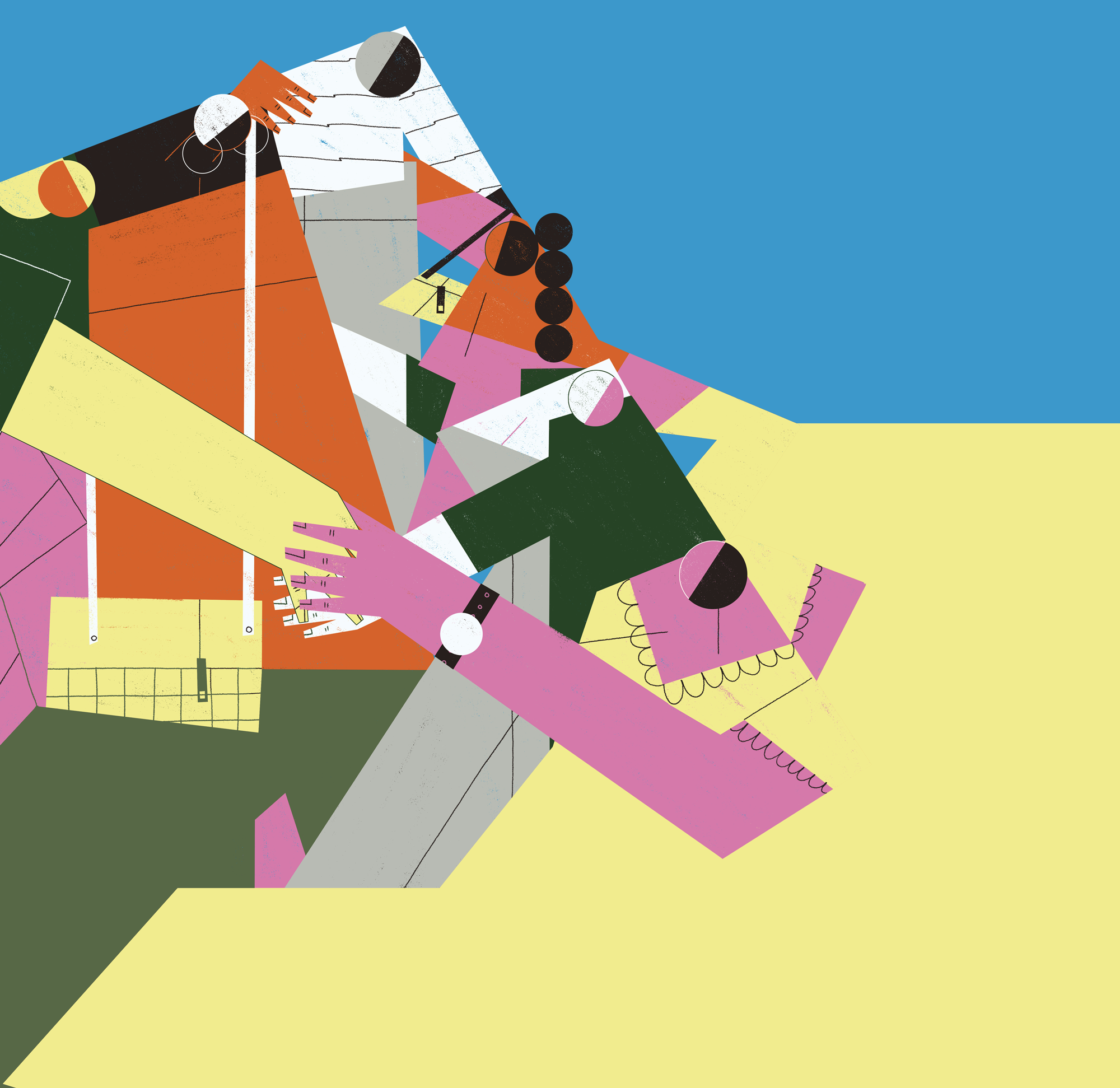THE
BLAME
GAME
Moving past finger pointing as a response to poverty
THE
BLAME
GAME
Moving past finger pointing as a response to poverty

Story by Joan Erakit
Minneapolis is one of the greatest cities in the world, at least to me. The city made me who I am, taught me some hard lessons, and prepared me to go out into the world and do some great work. As an immigrant teen, I grew up driving my brother and his band of skateboarder friends all over Minneapolis — there wasn’t a neighborhood I didn’t touch. It was this big sister obligation/exploration that allowed me to see what everyone lived like. From the deep ends of Northeast cruising down Broadway, to getting my hair done at Dimensions on the corner of Irving Avenue, and all the way out to the uncomfortable silence of suburban streets in Golden Valley, the city was mine to discover.
My brother had friends from all backgrounds, and the skateboarding community, specifically Fobia Skateboard Shop and 3rd Lair, brought them all together. It was in these moments, amongst friends, colleagues, and neighbors that I got my first view of what poverty looks like in the United States. It looked just like me. It sat next to me in my Biology 101 class at 7:30 am on campus at the U. It joined me while I took out the trash at work and it was a guest at a table at the Uptowner on Hennepin after a night of drinking and dancing.
In this country, people who haven’t experienced poverty see it as something alien, something easily identifiable, almost a caricature.
That belief makes it easy to see those experiencing poverty as “other,” which in turn opens the door to all kinds of harmful narratives.
But poverty isn’t “other.” It’s everywhere. One in seven people in the U.S. are in families below the poverty threshold (an annual income of $26,500 for a household of four). In Minneapolis, it’s one in five.

A few years ago, poverty knocked on my family’s door.
We lost our home because times were hard. We were an immigrant family trying to live the American dream, but we found ourselves not being able to keep up with the Joneses.
I still remember the day I got a call from my sister informing me that it had happened. She was shaking on the side of the line — hysterical because a sheriff had appeared at the front door. I, on the other hand, didn’t have any words. I was in New York, sleeping on a friend’s couch while my family was being evicted from the only home I’d ever known, and forced into a motel on the outskirts of town.
It was the beginning of my personal relationship with poverty.
After that, we went from a two-person family income to a one-person income. To add to the stress, I had recently lost a job, my brother was still in graduate school, my sister was in her first year of college, and my father was suffering from deep health issues. We were, as a family, in dire straits.
Losing the house was shocking enough, but the reactions of people, even within our community, deepened the pain. We received empathy from those who knew us personally. But those who didn’t know our family perceived us as lazy and careless.
To them, we were not good Americans or good humans — but instead just another immigrant family trying to benefit from the system. I distinctly remember the sense of shame that we all felt.
My parents sought the financial help of an extended family member, who, after listening carefully to their story, quickly reprimanded them, telling them if they had only worked harder this would have never happened. This family member also suggested my parents look into an apartment in a less “white” area where they could live “simply” among people in their same situation.
I don’t want to make the people who are connected to me feel uncomfortable, but being able to tell the truth has been freeing.
Our society does a lot of shaming when it comes to poverty. Our privilege allows us the space to flex our assumptions about a person based on what they have, or don’t have. When a person can’t afford to live out an experience that may be familiar to us, be it buying a home, or joining a dinner at a restaurant, we often do one of two things: we either ignore their “lack” because it makes us feel uncomfortable that someone does not have what we have and we don’t know what to do about it; or we quickly assume that there’s a step in the process that they did not follow. The latter gives us the freedom to judge their character, rather than their circumstance.
“Poor” doesn’t mean broke, or jobless, or criminal — it simply means human.

History tells us that during the Stone Age (or we can say “pre-modern” times) there was only stick and stone. Man and woman hunted and gathered their food to feed their kin, lived in communities and assumed a collective attitude. There may not have been a concept of property, and even if one man had more food than another for a season, he was still seen as an equal participant of the community, and not less than. Making poverty human removes the stigma and the blame, and forces us to address the underlying issues that create lack in our society.
I once gave a lecture at a private college in Italy with a focus on Storytelling. The main point I tried to make was this: by telling the stories of our lives, we get to rewrite an old narrative about ourselves, we get to own who we are and take pride in who we can become.
I’m a 36-year-old immigrant woman who has endured poverty, but by simply telling this story and reflecting upon it, I am carefully letting that narrative go.

This pandemic has made me realize that though challenging and dehumanizing as poverty is, when we change the narrative of what it means to be poor, we take back a little power.
I’m in no way offering a simple solution to a complex human issue, I’m merely suggesting that in addition to changing systems, appealing to the financial institutions to leave archaic policies behind that only target and take advantage of impoverished communities, or equipping immigrant families with financial planning — normalizing poverty, essentially rewriting the narrative of what it means to be poor will leverage our society’s abilities to change it.
One of the first things that happens when this change of narrative occurs is a restoration of community. We stop living in the “I” and start experiencing the “we,” working together as a collective to address the lack in our society. The second thing that happens is the shedding of guilt and shame by the individual or community that was originally deemed poor. That freedom from shame also allows one to ask for help without feeling guilty — one of the biggest setbacks anyone in need can experience.
Normalizing poverty is not an overnight task and requires a commitment to the idea that we all deserve to live healthy, happy, comfortable lives.
To be human is to be accepted for all that you are, to experience empathy, and to be in community with others. Poverty should not take that from anyone.


contributors